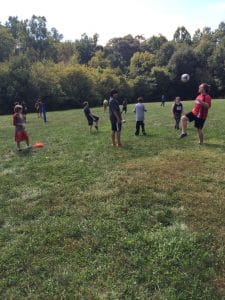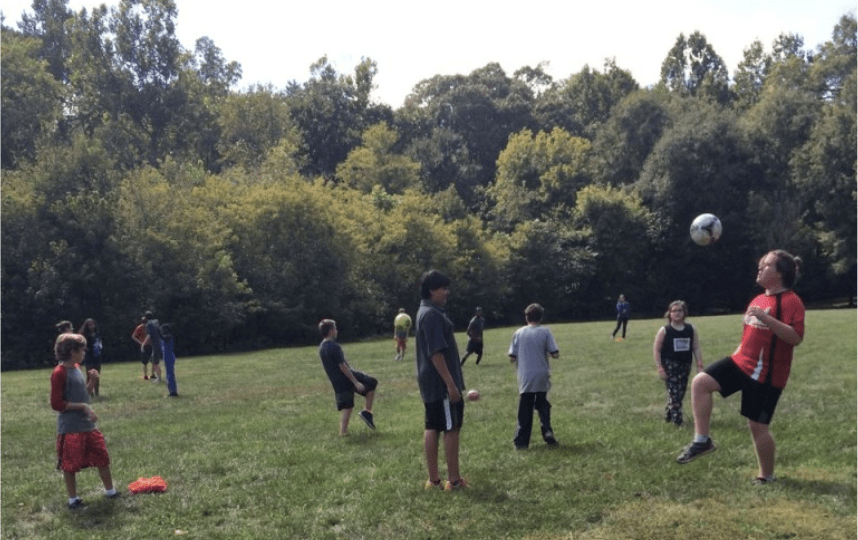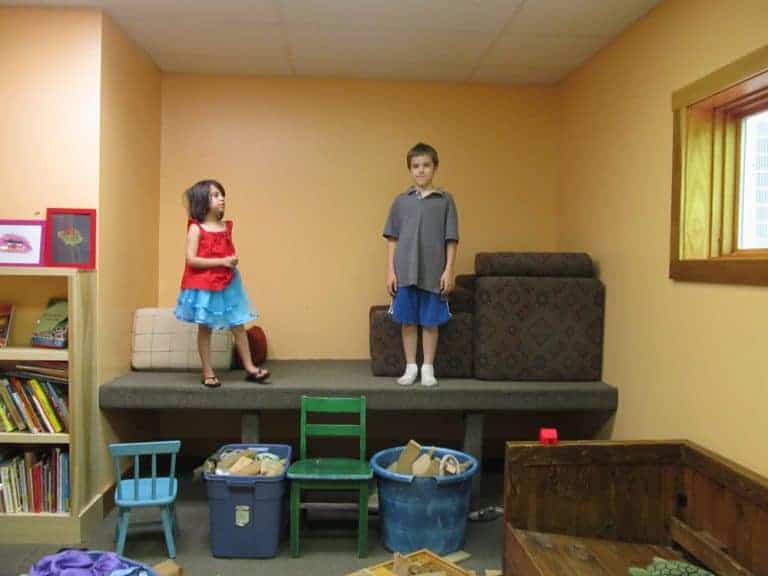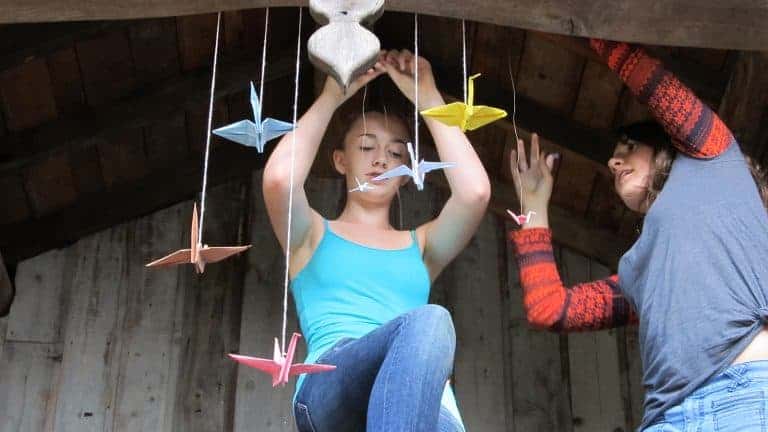Fair Ball
This blog post was originally featured as an article on Fairhaven School’s previous website.
By Mark McCaig, Fairhaven staff member.
 Do you remember playing kickball? Since we first opened our doors, Fairhaven students and staff members have spent hundreds of hours playing kickball, and inclement weather seemed to be the only deterrent to passionate games on the lower field. This year, however, tension caused by players trash-talking, disagreements about rules, and a general malaise descending on the game threatened its existence. How the players addressed these issues exemplifies problem solving at Sudbury schools, and might concretize how our community functions.
Do you remember playing kickball? Since we first opened our doors, Fairhaven students and staff members have spent hundreds of hours playing kickball, and inclement weather seemed to be the only deterrent to passionate games on the lower field. This year, however, tension caused by players trash-talking, disagreements about rules, and a general malaise descending on the game threatened its existence. How the players addressed these issues exemplifies problem solving at Sudbury schools, and might concretize how our community functions.
After several kickball games fell apart, one especially unhappy player wrote up several other players and thus the problem entered Fairhaven School’s judicial system, an egalitarian system steeped in principles of democracy and due process. The Judicial Committee (“JC”), a rotating body representing every age group on campus, read the following grievance to the plaintiffs and defendants: “They kept on bothering me and saying all these rude comments about me! As always.”
First the plaintiff and then each defendant spoke to the issue, and it soon became clear that trash talking was rampant between the lines of the kickball field. Furthermore, some players liked it and viewed it as part of the game, while others hated it and just wanted to play ball. Several student expressed frustration about arguments during the games. Witnesses testified about the issues, and it soon became clear that all of the defendants and the plaintiff herself had violated one of the school’s bedrock rules: “No one may knowingly or negligently infringe on anyone’s right to exist peaceably.”
JC voted to charge each person with violating the Right to Exist Peaceably rule and each pled guilty to the charge. The next step in the process is sentencing, and typically JC would restrict the guilty parties from playing kickball for a while. However in this instance, JC sensed that more intervention might address the obvious problems plaguing the kickball games. Citing the examples of sports leagues, JC sentenced them all to attend an inaugural kickball meeting.
This decision was a home run. Immediately after JC adjourned, the principals in the case and several other interested people (including me) convened the meeting. As we do at other meetings at the school, we elected a chair and a secretary and made decisions by majority vote. First we hammered out language for a “Kickball Code of Conduct.” Highlights include requiring an umpire for games involving ten or more players, and compromising on trash talking by accepting it as part of the game but affirming that people do not have to be the subject of verbal abuse.
The second part of the meeting became a lively discussion of controversial rules. We voted that “Kickball follows the general rules of baseball,” and then we voted on specific divergences from baseball rules. Examples include no base stealing, four fouls and you’re out, and to the particular dismay of one traditionalist (“We’re overturning over a hundred years of baseball tradition!”), no sacrifice flies. Toward the end of the meeting, players were visibly chomping at the bit to play, and upon adjournment, they rushed out to a spirited, happy game. The secretary, meanwhile, typed the minutes, collected signatures from the participants, and posted the Code of Conduct and rule decisions.
Soon after this day, winter finally arrived and the young people of Fairhaven moved on to other pursuits. The red kickball sat in a closet for awhile, awaiting a warm day and renewed interest. The Code of Conduct was hung on the wall, and when the first warm day of spring arrived it did, in fact, ensure a more enjoyable game for all. Perhaps most importantly, though, the school’s democratic structure continues to evolve, ever present as a problem solving tool for the next issue and a means of empowering the remarkable students at Fairhaven School.


